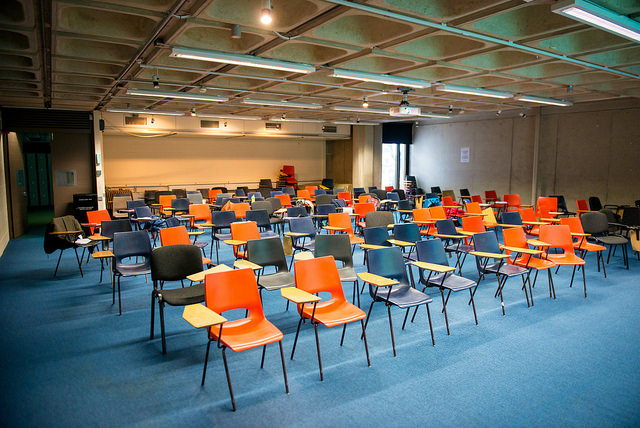The original meaning of the word “perversion”, according to the Oxford English Dictionary, is “turning the wrong way”, or “diversion to an improper use”. There is a good case to be made that in Ireland there are elements of the educational system that are, in this sense at least, perverse.
Let’s think for a moment here about assessment. In the Irish secondary school system, many hundreds of hours in the senior cycle are spent preparing for a single exam, the Leaving Certificate. Regardless of what teachers or educators might think that they are doing (or wish that they were doing) in the classroom, the message that comes across loud and clear to students is that learning equals exam preparation. So students spend hour after hour practicing exam techniques, pouring over past papers as if they were lost prophecies that hide portents of the future. In such a system, the determining test applied to any idea or piece of information is not “is it true?”, “is it interesting?” or even “is it right?”. The only really relevant question is reduced to: “Is it on the exam?”
We need to think about “assessment” as simply one part of a wider learning process – a process that is not only continuous throughout a given module or course, but which continues long after graduation
Is this perverse? If we go back to the Oxford English Dictionary, we find that the original meaning of the word that we use to describe examination – “assessment” – originally referred to determining the value of something so that it could be taxed. In other words, assessment was something added on at the end, a necessary valuation so that the king could take his tithe. What does this tell us about a system of learning that treats “assessment” as its primary aim? It’s a bit like saying that the aim of working is to pay taxes. That sounds like “diversion to an improper use” to me.
It may be that the best way to think about “assessment” is not to think about it as “assessment” at all. The word should not conjure up the image of a group of anxious students hunched over desks in an exam hall, utterly separate from the lived experience of the classroom. In other words, we need to put aside the idea that the assessment is something added on to the end of learning, if only because there is always the strong possibility that the thing added on at the end will supplant the thing itself. Instead, we need to think about “assessment” as simply one part of a wider learning process – a process that is not only continuous throughout a given module or course, but which continues long after graduation.
How do we do this? Again, words can help us. The key distinction here is between “formative assessment” and “summative assessment.” Summative assessment is what a final exam provides: a chance to sum up what has been learned. In many cases, the only feedback that a student will ever receive from a summative assessment will be a mark on a transcript, or at most a hasty glance through the examiners’ comments after the module has long finished. Formative assessment is different. Formative assessment is not something that comes at the end of a process. Instead, it is part of that process. This might be a short research exercise, a practical project, a learning journal, or a presentation, for which the lecturer provides comments and suggestions while the module is still running (or immediately after it finishes), allowing the student to return to the ideas, building and developing on what has been done. With formative assessment there is not only learning in preparing for the assessment, the learning continues afterwards.
Yes, there will probably always be some place for the final exam. There are certain subjects where the final summative assessment is the best way to bring together what has been learned. At the same time, the number of final exams will decrease dramatically
There is now a growing body of research to show that one of the factors that impacts most on how well students learn is the quality and frequency of feedback from lecturers. In other words, formative assessment works. And, of course, across Trinity there are a great many lecturers who know this. There is now at least one entire department that has abolished final exams completely and there are individual lecturers who are showing extraordinary vision and imagination in the ways in which they think about the relationship between learning and assessment.
One of the most profound transformational effects of the Trinity Education Project will be to change this relationship between summative and formative assessment in a systematic way, spreading individual instances of creative thinking throughout the university. Instead of treating the final summative exam as the norm, to which, say, a learning portfolio is an alternative, we start to ask in any given case: how can assessment most effectively become learning? Yes, there will probably always be some place for the final exam. There are certain subjects where the final summative assessment is the best way to bring together what has been learned. At the same time, the number of final exams will decrease dramatically when the new structures start to come into effect in 2018, and that will mean thinking about assessment differently.







